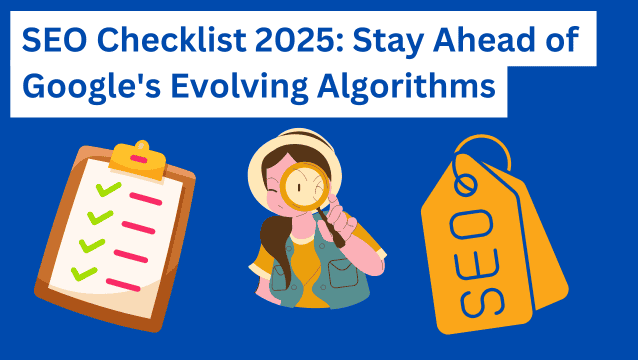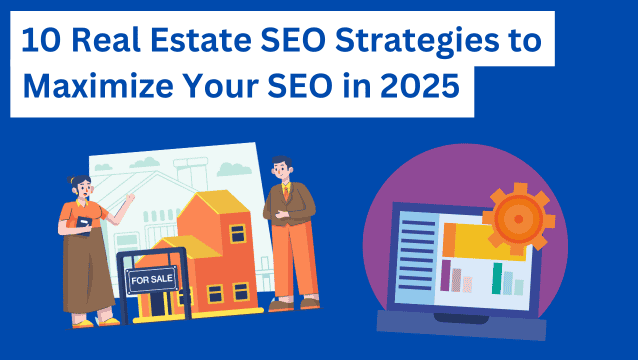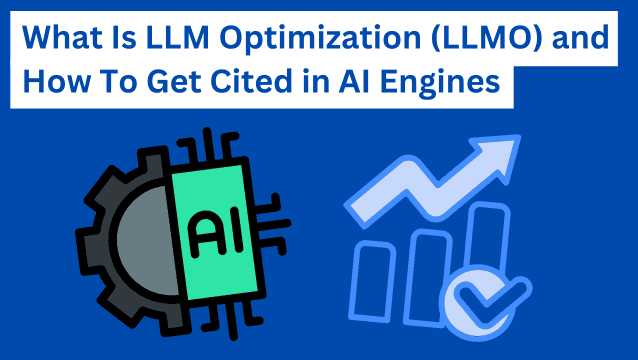Most marketers understand the basics of SEO. Find keywords, use target keywords in content creation, write metadata including the keywords, and hope for success.
But many business owners find that’s not enough. And frankly, it isn’t. Not anymore. There was a time when peppering your blog posts with keywords was enough to win you a coveted spot in search engine rankings, but now, embracing advanced SEO services is crucial for website success.
Different types of SEO
To optimize your site for long-term success, you need to understand the different types of SEO.
You know the most common type — on-page SEO. This type of SEO is all about the content on your web pages.
So when you use target keywords, use HTML tags to structure blog posts, refresh old articles, consolidate duplicate content, and optimize page titles, you are doing on-page SEO.
But there are equally as important search engine results page (SERP) optimization strategies to consider.
There are many types of SEO, but generally, the major players fall into three buckets: on-page, off-page, and technical.
You’ve already got a good grasp of on-page, so here’s a deeper look at the other two.
Off-page SEO
As the name suggests, off-page SEO is the opposite of on-page SEO. Off-page SEO is about the factors outside of your website that affect its search rankings.
Many marketers believe your backlink profile is the most important off-page SEO factor.
Yet 95% of all pages on the internet have zero backlinks pointing back to their website.
The lesson here is that focusing your SEO strategy on obtaining a lot of high-authority backlinks can give you a huge competitive edge.
Link building is a substantial element of off-page SEO, but it is not the only one.
Other off-page strategies include:
- Content channel diversification
- Influencer collaboration
- Outreach and digital PR
- Social media marketing
- Guest blogging
(Need help with improving your backlink profile? We’d love to talk to you about this if you want to chat. We’ve got a thing for building links.)
Technical SEO
Technical SEO is where you get down to the nitty-gritty. It’s the digital equivalent of pulling on your coveralls and wriggling into your crawl space.
Technical SEO happens in the backend. If your technical SEO or website hosting is bad, you’ll experience various problems
Some problems you can expect to encounter include glacially slow page loading, broken images, and poor navigation and user experience.
Humans and search engines alike should be able to find and navigate your site easily. This is where good technical SEO shines. It transforms your site into a highly visible rockstar and not just another dreamer on the block.
Technical SEO is usually outside the wheelhouse of content marketers. Still, it’s important to understand what’s involved and why it’s an important ranking factor, even if you are not directly responsible for it.
Advanced SEO services
Alright, you’ve got some basic knowledge under your belt. Let’s move past the basics and dive into more advanced SEO services that will help your organic rankings.
Technical SEO audits
As a digital marketer, you probably do content audits all the time. A technical SEO audit is more robust.
Instead of focusing on individual pages, a technical SEO audit puts the infrastructure of your entire site under the microscope.
Here are some important components of a technical SEO audit:
Website crawlability
Crawling is how Google knows how to index your site. A well-indexed site means improved visibility. Aim to ensure your web pages are crawlable by auditing for broken links, duplicate content, and XML sitemap errors.
Site speed optimization
Slow-loading pages frustrate users and show search engines that your site is not serving an optimal user experience and, therefore, is not a good site to rank. This is bad news. Luckily, tools like Google PageSpeed Insights make it easy to pinpoint areas for improvement in your audit.
(Note: A slow website doesn’t just harm your SEO efforts. But, it also negatively affects user experience – A longer load time leads to a higher bounce rate and your audience is more likely to leave your site. (Moz)
Mobile Usability
Over 63% of all internet traffic comes from mobile devices (Exploding Topics). Your brand can’t afford not to optimize for mobile. Make sure you audit to check that all your web pages are optimized for mobile and that mobile users have a seamless user experience.
Structured data
Structured data (also called schema markup) are added codes that enrich search results with more information for readers.
For instance, if you google “lasagna recipes,” results with structured data show appealing images, recipe reviews, and cook times instead of only a link and meta description.
Structured content enhances search engine understanding of your website’s content and improves user experience. To manage these optimizations effectively, using an Admin dashboard can be a game-changer. It brings together essential SEO tools and data in one place, making it easier to monitor site performance, address crawl issues, and maintain structured content standards all in real time
Monitoring malicious links
Some bad actors use black hat SEO tactics to hurt their competitors. This includes building spammy backlinks to your pages from low-quality websites.
Search engines see this as a sign that your site is also low-quality, and it can really hurt your rankings. Diligently monitor your backlink profile in your SEO tool to disavow any malicious links.
Competitive analysis
If you’re not ranking #1 yet, someone is, and they’re doing something to get there. You can find out what it is. Reverse-engineer their success and rebuild it in your own brand.
Start with:
Audit their backlink profile: Figure out who’s linking them and how you can also uncover these opportunities.
Keyword gap analysis: Find high-volume keywords your competitors are ranking for, but you aren’t. Build content around these keywords, and do it better.
Brand presence: What are they doing off-site? On social media? In PR? In print, radio, and podcast? What resources do they offer? What problems are they solving? What is their brand tone, messaging, and publicly lived value system? Get inspired and put your own spin on it.
Content marketing strategy development
Are you writing content just to write it, or do you have a content strategy? Like, a developed, documented, data-based roadmap to conversions?
If you answer no, develop your content marketing strategy into an SEO facilitator.
Content marketing is a powerful machine with high ROI. But too many marketers use content creation because they know it’s an industry best practice and not because they understand how well it can work for them.
Consider adding these elements to your custom SEO strategy:
Topic clusters
Topic clusters are a way of organizing your blog content to maximize its SEO potential.
For instance, instead of building your keyword lists around various topics that don’t connect, you gather a list of keywords with similar intent and link them together.
Let’s say you sell coffee supplies. Instead of writing about whatever coffee topic you think will rank, you strategically do keyword research for potential clusters.
Next, you create content based on the keyword topic cluster and link them together.
There are a few SEO advantages to this. Firstly, you’re creating a robust internal linking web on your site. This boosts your linking profile.
Secondly, it signals to Google and your readers that you are a thought leader on the topic, boosting your brand’s authority and credibility.
Maximized redistribution
The average blog post is between 1,500 – 2,000 words long. Many marketers publish several times a week.
That means you have a TON of valuable information that is wasting its search engine ranking potential just sitting on your site.
Distribution is the name of the game. You’re repeatedly pulling in organic traffic from the same long-form piece of content.
If you haven’t started distributing much yet, consider these channels:
- Instagram captions
- Email Newsletters
- Industry forums
- Linkedin posts
- Social Ads
- Webinars
Magnify images
Images aren’t just a way to promote brand voice and share information. They’re also a valuable SEO tool.
When you create graphics that provide valuable information about your industry, you’ve made a path for others to link back to you.
I’ve known SEOs who created stock images for free websites like Pixaby and Unsplash to earn a linkback whenever someone uses an image they’ve created.
Get creative with it, but stay above board. Black hat SEO tactics only hurt you in the end.
Local SEO optimization
Local SEO involves targeting a specific geographical area. This is particularly important for small and brick-and-mortar businesses. Who hasn’t Googled “plumbers near me” during a crisis? Or “best pizza in Seattle” on a hungry evening when you don’t feel like cooking?
The results you get are due partly to the effort those businesses have put into local SEO.
To improve your local SEO, begin with:
Google Business Profile optimization
Your Google Business Profile is free and easy to optimize. It allows you to control how you appear in search results. Optimizing it includes keeping it updated with accurate information, images, and customer reviews and using strategic keywords in your descriptions.
Image source: Provided by author
A Google Business Profile increases your chances to rank better in search engines. Google prioritizes optimized profiles when someone searches for local services. And, according to ReviewTrackers, more than 50% of businesses don’t implement local SEO techniques, and 88% of consumers are more likely to use a business that interacts with customer reviews online.
Localized content
Publish content tailored to local events, news, or community interests. This content will usually not be evergreen, but it’s important to include it in your strategy to signal that you are a local business.
Geo-targeted keywords
This one’s important. Use region-specific keywords across your website to capture local search intent.
Getting help with SEO services
There are several ways you can get help with SEO services.
Agencies
Agencies specialize in advanced SEO services. A good one is worth its weight in gold. The drawback is that a bad one will drain resources and set your company back considerably.
As with any partnership, finding the right fit will take some time and effort, but it is definitely worth it if you find the right one.
Freelance
Many talented freelancers offer SEO services as solopreneurs. You don’t have to jump through the same hoops as with an agency, but finding a good one is often just as difficult.
Still, putting feelers out to your network and seeing who’s out there is a good place to start. A solid partnership with a good freelancer offers smooth and effective SEO for years to come.
Hiring in-house
A technical SEO specialist is a wonderful addition to any SEO team. They handle all the rough stuff and keep you apprised of the situation so you can take care of the overall goals of your digital marketing strategy.
The downside to this option is that in-house talent is expensive. There is also the learning curve to consider and cultural fit. You may not be at the point where having a full-time team member is warranted, but you nevertheless need the work to be done.
If your business has scaled significantly and you are expecting continual growth, hiring in-house is well worth the effort and expense.
Doing it yourself
If your budget is tight, there’s no shame in rolling up your sleeves and doing it yourself. There are many guides and resources (many of them free) to learn about SEO.
This is the best option if you have more time than you do money and you’re a self-starter who is good at teaching yourself things.
If you feel like dissolving into tears or punching the wall at the mere thought of performing advanced SEO services yourself, eh, you know, maybe it’s not for you.
Get your site on the map
Advanced SEO services aren’t negotiable if you want your site to perform. But you don’t have to go at it alone.
Educate yourself on the different types of SEO and how to conduct a technical SEO audit. Next, make sure your content strategy is working for you, you’re staying ahead of competitors, and maximizing the search reach of all your content assets.
If you need help at any time, we’re just a click away! We’ve helped hundreds of brands reach their SEO goals and we’d love to help you too.


